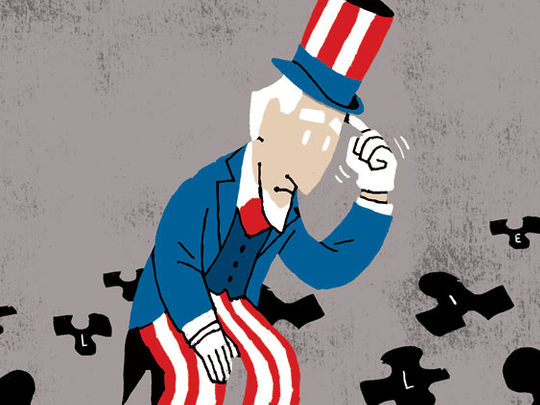
Middle East politics is complex at the best of times, but, seen from Washington, today’s regional landscape is bound to look a bit like a game of three-dimensional chess.
Egypt faces political turmoil. Syria’s civil war threatens to drag down Lebanon and occasionally spills over into Turkey. The slow-motion confrontation over Iran’s nuclear programme shows no sign of ending. Israel is just more than a month away from an election that seems likely to move the country even further to the Right, and, in so doing, make those other problems, and its own struggle with the Palestinians, even more difficult and intractable.
Those are just the “big” conflicts. Kuwait, Bahrain, Yemen and Jordan all pose additional, if lower-key, problems while Libya — now metamorphosed into a domestic rather than a foreign policy issue — promises to haunt President Barack Obama’s relations with Congress for weeks, if not months, to come.
In addressing any of these issues, large or small, Washington needs to consider not only the impact of its actions on all of the others, but also the reaction of allies and adversaries around the region and in the wider world.
Last week, Egypt and Syria both managed to break through the clatter of US domestic politics to occupy prime space on the front pages of newspapers and at the top of television news programmes. Across the political spectrum, one heard concern expressed about both the violence in Cairo and the possibility that Syria’s government might cross one of the modern world’s few collective red lines by ordering the use of chemical weapons.
In a strange way, the Syria issue is the more straightforward of the two. If there is one thing the international community can easily agree on it is that chemical weapons are very, very bad. One can criticise the seemingly endless “friends of Syria” conferences and opposition meetings of one sort or another for their ineffectuality, but they at least represent a collective attempt to do something about the crisis.
Egypt is less clear-cut and thus, in some ways, more difficult. Because of its size and regional influence, what happens in Egypt has far-reaching implications. Yet, as events unfold, there is little that Washington, or the rest of the world, can do except watch. Egypt President Mohammad Mursi appears determined to hold a referendum on Saturday to “approve” a new post-Mubarak constitution for the country. I put the word “approve” within inverted commas because there is little doubt that the document will be approved and that the opposition will reject the vote as illegitimate. As a result, this long-anticipated document seems likely to promote further instability in Egypt rather than put an end to it.
When it reacts to the inevitable result, however, Washington will have to weigh its displeasure with the Muslim Brotherhood’s heavy-handedness against its need for Egypt’s assistance in dealing with the region’s other problems.
After four years in office, it is fair to say that Barack Obama is not especially preoccupied with the Middle East. He is not insensitive to the region and its problems, but neither does he want his presidency, and its eventual legacy, to be bogged down by the region’s seemingly intractable conflicts. Obama comes across as a man who is sincere when he says he wants to rebuild America’s relationship with the Muslim world — but for whom, doing so, is far from his top priority.
Since the Arab Spring’s beginning, two years ago, this month, Obama, US Secretary of State, Hillary Clinton, and the people around them have seen clearly that Washington has only limited ability to influence the events reshaping the region. To retain some influence over the things it really cares about — Israeli security, the steady flow of affordably-priced oil, preventing Iran from becoming a regional hegemon — Washington needs to avoid spending political capital on issues where its opinion counts little.
Later this week, Mursi’s constitution is set to win approval in a referendum that is likely to create more questions than it answers. Something this important should never have been put to so rushed and chaotic a vote. There is not, however, anything that the US can do about that.
On the three-dimensional chessboard that is the Middle East, America needs, for now, to concern itself with more immediate problems where it might actually be able to do something. Egypt’s revolution is still far from over. For now, however, there is little of significance that America can, or should, do as this most crucial power struggle of the Arab Spring plays itself out.
Gordon Robison, a long-time Middle East journalist and US political analyst, teaches Political Science at the University of Vermont.









